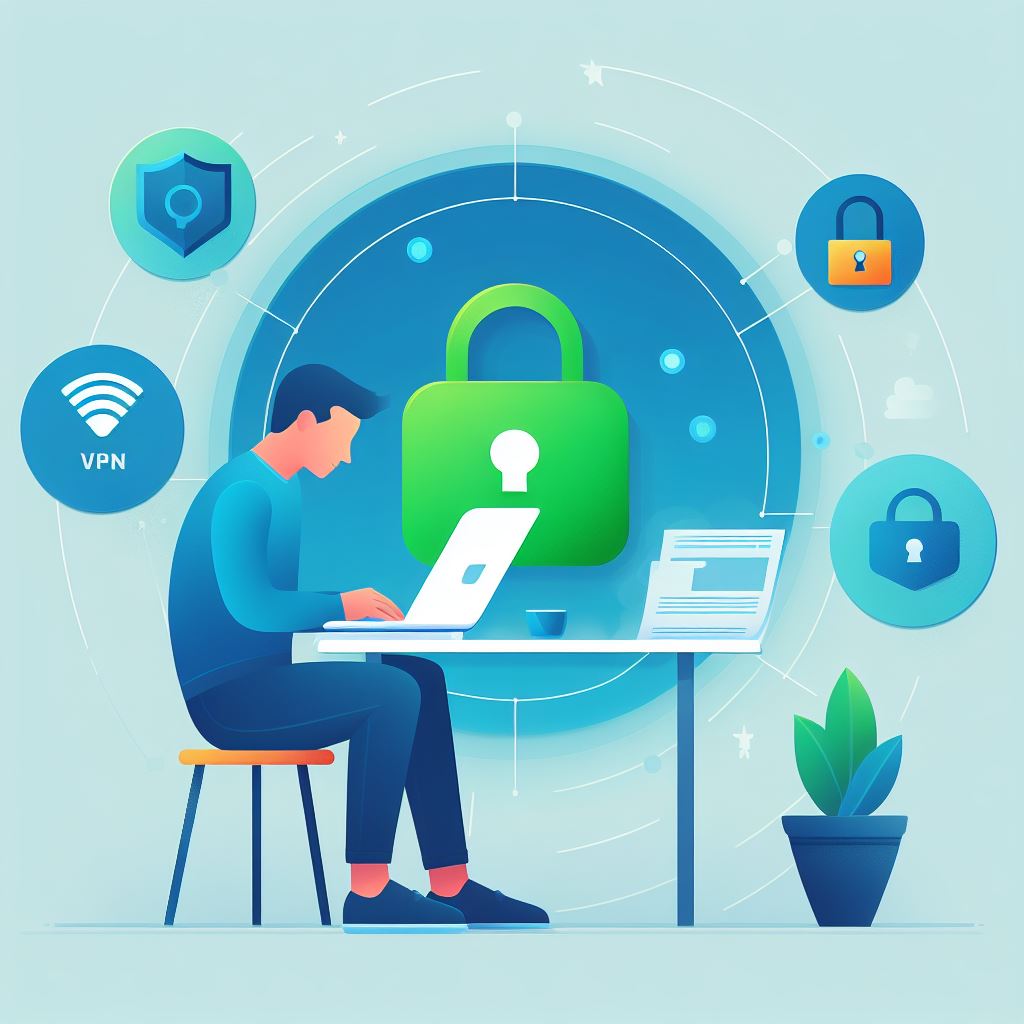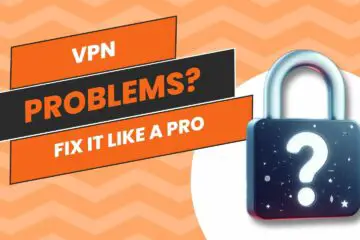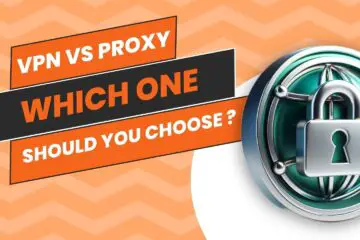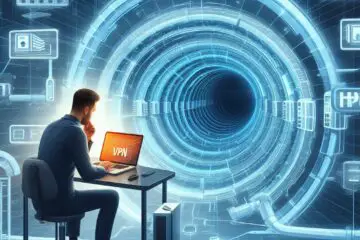The Secret Life of VPNs: How Virtual Private Networks Can Benefit You

A Virtual Private Network (VPN) is a service that creates a secure connection over the internet between your device and a server operated by the VPN provider. Using a VPN has several benefits:
- It encrypts your internet traffic so that your online activity is kept private. This prevents hackers and surveillance from intercepting your data.
- It hides your IP address so that your browsing history and location are concealed. This provides anonymity while browsing.
- It allows access to websites or services that may be geoblocked or censored in your region. A VPN lets you bypass these restrictions.
- It helps avoid bandwidth throttling from your internet service provider (ISP). By encrypting traffic, a VPN prevents the ISP from detecting and limiting certain types of bandwidth usage.
- It secures your connection on public WiFi networks, keeping passwords, banking information, and other sensitive data safe from snooping.
- It gives you access to region-restricted content like streaming media, sports, and video games globally.
The main benefits of using a VPN are enhanced privacy, anonymity, security, and access. In this article, we’ll explore each of these VPN advantages in more detail.
Encrypts Data
One of the main benefits of using a VPN is that it encrypts all of the data you send and receive when connected to the internet. This prevents your internet service provider (ISP), the VPN service, and any other parties on the network from being able to see what you’re doing online.
VPNs use encryption protocols like OpenVPN or IKEv2 to encode your data into gibberish during transmission. This keeps your online activity, identity, and sensitive information private. Only you and the destination website you’re connecting to can decode the data on either end of the transmission.
Even if someone was spying on the network, all they would see is meaningless scrambled data. They have no way to decrypt it back into usable information. VPN encryption protects against man-in-the-middle attacks, where data is intercepted and read or even modified before reaching its destination.
With a VPN, you can browse the web, make online transactions, and communicate securely knowing your data is protected. VPN encryption provides a vital layer of security for your online activity.
Hides IP Address
A VPN hides your real IP address by assigning you a different IP address based on the server location you connect to. This masks your actual IP and location, providing you with anonymity as you browse the web.
When you connect to a website without a VPN, that site can log your IP address and determine your approximate location and internet service provider. With a VPN, all the website sees is the IP address of the VPN server.
Using a VPN to hide your IP address allows you to browse the internet anonymously. Websites, advertisers, and even government agencies cannot track your online activities back to you personally. This prevents targeted advertising and surveillance based on your browsing history and interests.
Masking your real IP address also blocks your internet service provider from seeing your internet traffic and the sites you visit. ISPs can sell your browsing data for profit, so a VPN prevents them from invading your privacy in this way.
Overall, concealing your IP address gives you control over your digital footprint and online privacy. A VPN makes it extremely difficult for websites or third parties to monitor your internet behavior or identify you based on your IP address. Using a VPN allows you to browse anonymously and securely.
Bypasses Geoblocks for Accessing Region-Restricted Content
One major benefit of using a VPN is being able to bypass geoblocks and access region-restricted content. Many online services restrict certain content to specific geographical locations. For example, Netflix, Hulu, BBC iPlayer, Spotify, and other popular streaming platforms have different libraries available depending on what country you are in.
With a VPN, you can choose a server location in another country and appear as if you are accessing the internet from that country. By doing so, you can unlock content that would otherwise be blocked based on your actual physical location. This allows you to view catalogs from other regions and access a wider selection of shows, movies, music, and more.
Some key examples include:
- Accessing the US Netflix library with more titles while traveling abroad or living outside the US. Many use VPNs to unlock the full US catalog.
- Watching BBC iPlayer to stream UK television from anywhere worldwide. iPlayer is restricted to the UK only.
- Listening to music on Spotify that may only be available on the platform in certain countries.
- Watching region-locked videos on YouTube that are limited to certain locations.
- Reading news sites or digital publications that are limited to local readers.
With geoblocks in place, media companies segment their content libraries by region due to licensing restrictions. Using a VPN provides a convenient way around these digital borders, opening up more entertainment options from around the world. This gives users far more choice in what they can stream, listen to, and access online.
Avoids Throttling
Using a VPN allows you to avoid throttling from your internet service provider (ISP). ISPs will often throttle or intentionally slow down your internet connection, especially when using bandwidth-heavy applications like video streaming. This is done to manage network congestion.
However, when you use a VPN, your ISP cannot see what content you are accessing or throttling specific sites or services. This is because your traffic is encrypted and tunneled through the VPN server. The ISP only sees you connected to the VPN, not the actual content you are viewing.
By preventing the ISP from throttling connection speeds, a VPN ensures you can access content at the full speeds advertised by your ISP. You don’t have to worry about slow buffering times or degraded video quality caused by throttling. This makes a VPN ideal for activities like streaming HD video, downloading large files, online gaming, and video calls.
Overall, a VPN helps you avoid throttling and access content at the maximum speeds possible. Your ISP cannot discriminate against specific uses of your connection when protected by a VPN tunnel. This gives you full control over your internet experience.
Enhanced Privacy
One of the main benefits of using a VPN is that it provides enhanced privacy by helping you avoid tracking and hiding your online activity.
When you connect to the internet without a VPN, your internet service provider (ISP) can see all of the websites you visit and content you access. They are able to track your browsing habits and collect data on your interests to sell to advertisers or other third parties.
A VPN prevents this kind of tracking by encrypting your internet traffic and routing it through a remote server run by the VPN provider. Your ISP only sees you connecting to the VPN server, not the actual endpoints you visit after that. This prevents them from logging your browsing history and stops advertisers from serving targeted ads based on your interests.
In addition to hiding your browsing from your ISP, a VPN also hides your online activities from the websites and services you use. Without a VPN, websites can track your IP address, location, and behaviors across multiple sites to build detailed profiles about you. With a VPN, each website sees the IP address of the VPN server rather than your true IP address. This makes it much harder for them to connect your activity across sites and build profiles about your interests and habits.
By enhancing your privacy and preventing tracking by ISPs and websites, a VPN gives you more control over your own data. You can browse the web more anonymously and avoid having your personal information collected or sold without your permission. For anyone who values their privacy, a VPN is an essential tool for keeping your online activity hidden.
Public WiFi Security
Connecting to public Wi-Fi hotspots can be very risky. When you use public Wi-Fi, your online activities and data may be exposed to hackers who could steal your passwords, financial information, and other sensitive data.
Public Wi-Fi networks are often unsecured or have minimal security, making it easy for cybercriminals to intercept data being transmitted over the network. They can use techniques like packet sniffing to view unencrypted data sent over the network. This could include things like your login credentials, credit card details, emails, and more.
A VPN provides a solution to this major security vulnerability. It establishes an encrypted tunnel between your device and the VPN server, even when connecting from an open Wi-Fi network. All your network data is encrypted as it leaves your device, travels over the public Wi-Fi, and hits the VPN server. This prevents hackers on the network from being able to view and steal sensitive information.
With a VPN, you can securely access the internet on public networks without worry. The encryption will act as a shield around your browsing activity and data. Using a VPN is critical for protecting your privacy and security any time you need to connect to an open or untrusted network. It allows you to safely use public hotspots with confidence that your information will stay protected.
Access Censored Content
A VPN allows users to bypass censorship and access restricted content in countries that limit freedom of information. In regions with authoritarian governments, much of the internet is often blocked. Citizens face restrictions accessing foreign news, social media, and other sites.
By routing your traffic through a server in a different country, a VPN enables you to bypass geographic content restrictions. Suddenly you can read international news publications, use social networks freely, and access any site you want. Some restrictive countries attempt to block VPNs as well, but many quality providers stay a step ahead.
With an active VPN connection, you can tap into an unrestricted internet experience no matter where you are located. Enjoy open access to information rather than facing constraints on what you can read, watch, or post online. A VPN empowers people living under repressive regimes to access and share knowledge more freely. It represents a way to circumvent censorship, exercise digital liberty, and connect with the open global internet.
Cost Savings
A VPN allows you to access region-specific services and content at lower costs compared to if you were physically in that location. For example, by connecting to a VPN server in another country, you can:
- Access streaming services like Netflix, which have different libraries and pricing in different regions. Rather than paying for a more expensive Netflix subscription in your home country, you can connect to a cheaper Netflix region through a VPN.
- Take advantage of location-based pricing differences. Software, digital goods, and services are sometimes cheaper in certain countries. A VPN lets you access those lower prices no matter where you are located.
- Avoid international roaming charges when traveling abroad. Connecting to a VPN routes your mobile data through your home country rather than incurring potentially expensive roaming fees.
- Get around high import taxes or shipping costs. For example, electronics and imported goods can be cheaper in some countries. You can use a VPN to order those items as if you were in that lower-cost country.
By enabling you to access region-restricted services and content, a VPN can add up to significant cost savings compared to being limited by your physical location. The ability to tap into cheaper goods, services, and subscription plans is a compelling financial benefit of using a VPN.
Conclusion
Using a VPN provides many important benefits that can enhance privacy, security, and access to content. The main benefits covered in this article include:
- Encrypting data to prevent snooping and hacking of sensitive information. This is useful for anyone using public WiFi or transmitting private data.
- Hiding your real IP address and location, providing anonymity online. This appeals to people who value their privacy.
- Bypassing geoblocks to access region-restricted content. Helpful for travelers and expats who want to access content from home.
- Avoiding throttling and access restrictions imposed by schools, workplaces or governments. Especially beneficial for students, remote workers and those living under repressive regimes.
- Enhanced privacy by preventing tracking of your online activities. Attractive to people concerned about government surveillance or corporate data collection.
- Securing public WiFi connections against man-in-the-middle attacks. Critical for conducting any sensitive activities over public hotspots.
- Accessing news, social media and other sites censored locally. Empowering for those living in countries with internet censorship.
- Saving money by accessing regionally priced services. An advantage for savvy international travelers and consumers.
The types of users who benefit most from a VPN are privacy-conscious internet users, remote workers, international travelers, news readers in censored regions, and anyone using public WiFi regularly. With so many important advantages, a quality VPN service is a wise investment to protect your data and access the open internet.



